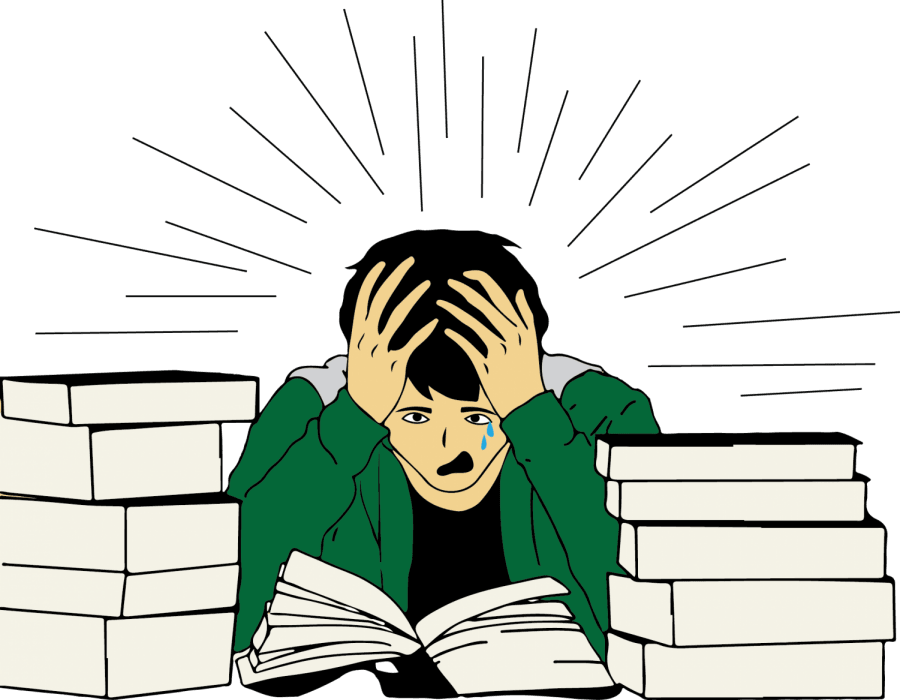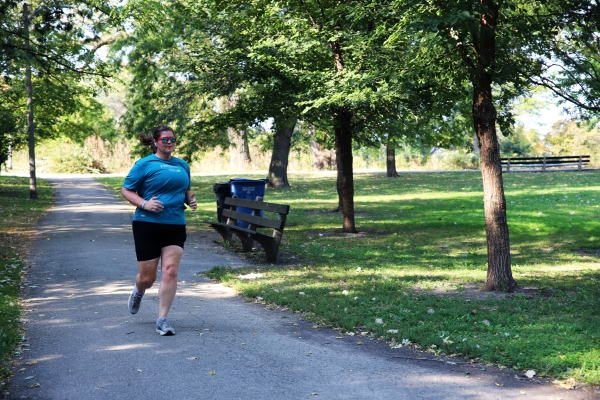Chicago ranks as one of America’s most stressed out cities
Chicagoans may have a lot more on their plate than deep dish pizza, a new study suggests.
In a recent survey by Zippia, Chicago was ranked number eight on the list of the most stressed out cities in America. There were 306 cities scored, each with populations over 100,000 people. Chicago’s fate was determined by six criteria: average commute times, unemployment rate, average hours worked per week, population density, home price to income ratio and percent of population without insurance. It follows in rank behind Miami, Florida and New York City, New York, among others.
It’s no secret that Americans are stressed out. Eight in 10 Americans say they sometimes (35 percent) or frequently (44 percent) are stressed, according to a 2017 Gallup study. More often than not, this stress is negative.
Negative stress can be defined as feeling overwhelmed to the point of being unable to cope with situations, according to DePaul’s Health Promotion Coordinator, Alyssa Rickman.
“The fast pace nature of a life in the city could contribute to people experiencing stress,” she said.
Students say that they see these levels of stress in Chicago, too.
“It makes sense to me that Chicago is a top city for stress,” said sophomore Elizabeth Jacobs. “Here, I always feel a big sense of urgency, and I feel that the need to live in that urgency all the time could really affect a person’s stress levels.”
“Stress can affect people in different ways, and obviously personality plays a big role in it, but I think that the general pace of the city is the main source of the problem,” said sophomore Haedy Gorostieta. “I think that we’re subconsciously influenced by the CTA, the pace of the people walking down the street, the horns of the workers that are running late. It’s a lot of stimuli and it’s definitely incorporated in our lives.”
The reach goes farther than just Chicago. Even smaller communities like that of DePaul’s are impacted by stress—perhaps even more so than other residents throughout the city.
“At DePaul, we are encouraged to really integrate in the community, to go out and get internships, to volunteer, to take advantage of the city in general,” Jacobs said. “So I feel that people at DePaul might be more stressed because we feel the need to be doing the most with our time here in the city and with fitting everything we need to do into the schedule.”
The stress that college students and Chicago citizens outside of academia experience is usually not the same, though, according to Rickman.
“For the typical college student, stress is often associated with managing change (e.g. transitioning to college, managing a class schedule, organizing and prioritizing tasks),” she said. “However, once negative stress is present and a person feels unable to perform or cope with such change, it may be time to seek help or assistance.”
But stress might not always be negative.
“While most people think of stress as being a bad thing, there is such a thing as positive stress,” Rickman said. “This type of stress is what people need in order to get things done and move projects forward. I like to think of positive stress as a pressure or urgency to complete projects that contributes to one’s personal success.”
That isn’t to say that most don’t want to avoid stress at all costs. There are several ways to cope with stress on a daily basis.
“Sometimes taking a day or even a few hours off is needed to decrease stress,” Jacobs said. “Also, I make lists all the time so I can visually see everything I need to do; crossing the tasks off helps with my stress so I can know that I’m on track.
“There are multiple ways people can manage stress, but it varies by person and no one way is the absolute best choice,” Rickman said. “People can manage stress in the moment by using a grounding technique that focuses on bringing the person from their wandering mind of “what ifs” to the present and what is happening in the moment. Taking deep breaths is always a favorite stress management technique of mine. To reduce tension, decrease the heart rate and relax a person can begin by taking a few deep breaths. Counting to three on the inhale and the exhale really helps me relax in any moment of negative stress.”
Short-term fixes may help most individuals, but they can’t fix the citywide problem.
“We’re human ‘beings’ not human ‘doings,’” Gorostieta said. “And we’d be far better off if we started acting like it.”







